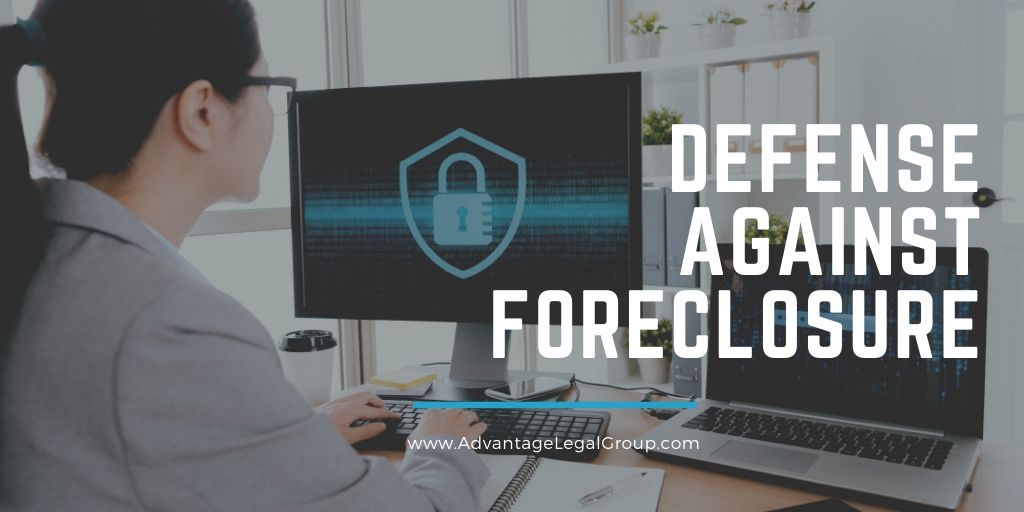Defending Against Foreclosure
If you are facing the loss of your home or fear that you may soon be facing a foreclosure, a law firm can help you to develop a strategy that may include defending against the foreclosure, negotiating a modification, refinance, short sale, or implementing a strategic default plan. A Foreclosure Defense Law Firm assists clients in all stages of the pre-foreclosure and foreclosure process.
30 Days to Respond
It is important to act or seek assistance as soon as possible to ensure that you do not lose some of the many options you have when faced with a foreclosure. There are deadlines in the foreclosure process as well as certain requirements that the banks must follow, in order to successfully foreclose on a home. Once you are served with a summons and complaint from the bank, you have only thirty days to respond and defend against the foreclosure.
Defenses to Foreclosure
Challenge a foreclosure by bringing a defense such as unconscionability or lender mistake. Homeowners and their attorneys are challenging foreclosure actions in many different ways. Here are some of the most common defenses to foreclosure.
How to Raise a Defense to Foreclosure
Courts are sympathetic to challenges to foreclosure actions; attorneys are raising many different types of defenses. Below is a description of the most common of these.
Common Foreclosure Defenses
-
The Terms of the Mortgage Are Unconscionable – It usually is not enough to simply claim that the foreclosure is unfair; rather, you have to come up with a specific justification for your position that has previously been recognized by the courts.
-
You Are a Service member on Active Duty – If a foreclosure is initiated while you are on active duty, you can automatically receive a nine-month postponement.
-
The Foreclosing Party Did not Follow State Procedures – If your challenge is successful, the court will issue an order requiring the foreclosing party to start over.
-
The Foreclosing Party Can’t Prove It Owns the Mortgage- If your mortgage has been sold and bought by many different banks, lenders, and investors, proving just who owns it can be difficult for the last holder in the chain.
-
The Original Lender Engaged in Unfair Lending Practices- You may be able to fight your foreclosure by proving that your lender violated a federal or state law. Lenders violate TILA law when they do not make certain disclosures in the mortgage documents, including the annual percentage rate, the finance charge, the amount financed, the total payments, the payment schedule, and more.
-
The right to rescind the loan – the key remedy in foreclosure actions is the borrower’s ability to retroactively cancel or rescind the loan.
-
State-law remedies for “high-cost” loans – A few states have special protections for people facing foreclosure on “high-cost” mortgages.
-
The Mortgage Servicer Made a Serious Mistake – You may be able to challenge a foreclosure based on mistakes such as:
- Crediting your payments to the wrong party.
- Imposing excessive fees or fees not authorized.
- Substantially overstating the amount you must pay to reinstate your mortgage.
To learn more about these defenses and other ways to avoid foreclosure contact a foreclosure Defense Lawyer. A Foreclosure Defense Lawyer will:
- Provide you with a free consultation
- Review your documents and information
- Outline a strategy to defend your home
